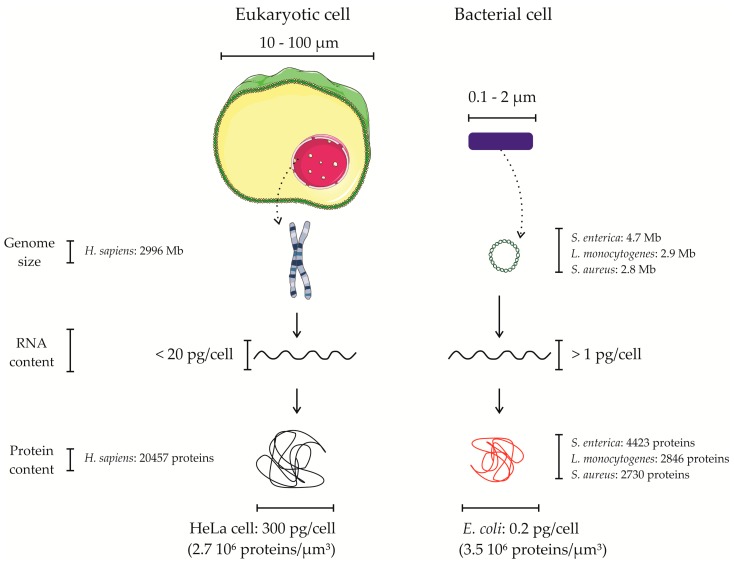Figure 1.
Macromolecular differences between cells of eukaryotic and bacterial origin. Eukaryotic and bacterial cells differ greatly in many aspects. First, in terms of size, these organisms are considerably different. Eukaryotic cells have a size that ranges between 10 and 100 µm, whereas bacteria are typically 0.1 to 2 µm of length. Macromolecules are the building blocks of life, present in all known living organisms. Eukaryotic cells and bacteria also have great differences in terms of their macromolecule content. Genomes differ in aspects such as size and organization, whereas the RNA content is about 20 times higher in eukaryotic cells. Finally, at the protein level, these organisms display differences not only in absolute numbers of proteins [20] and proteoforms expressed, but also in terms of the total amount of protein molecules per cell.

